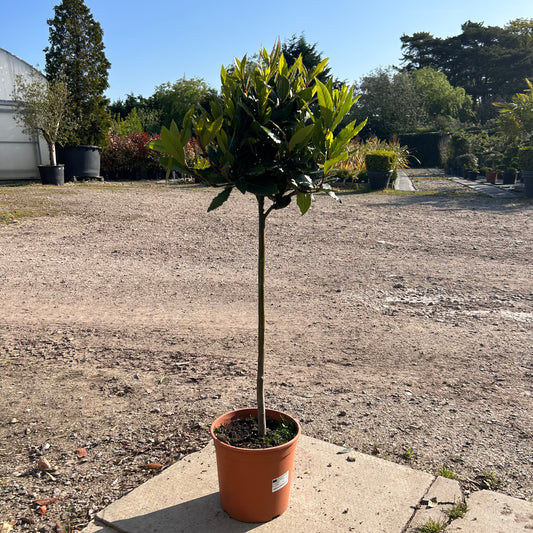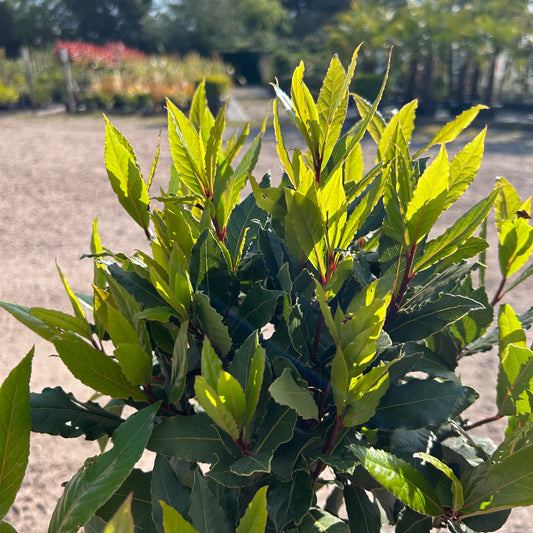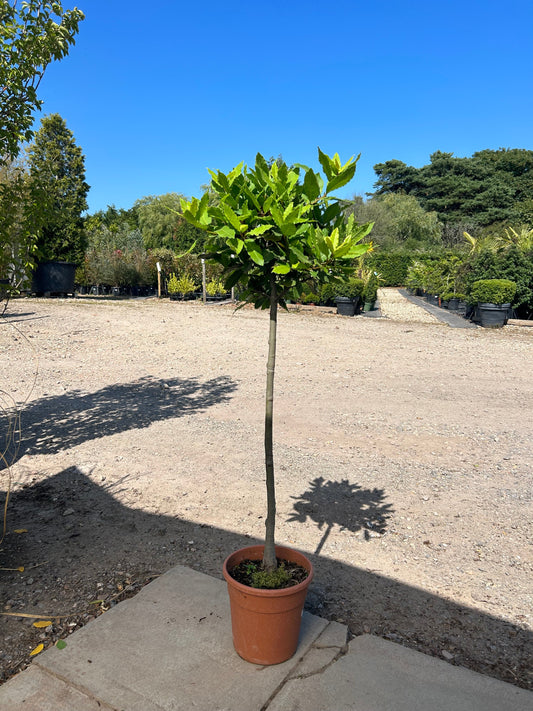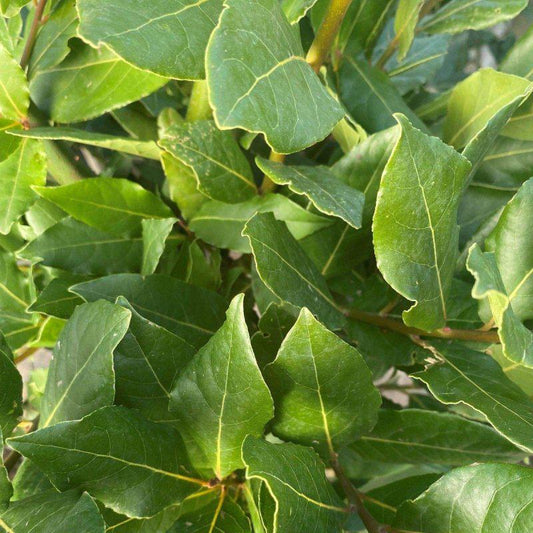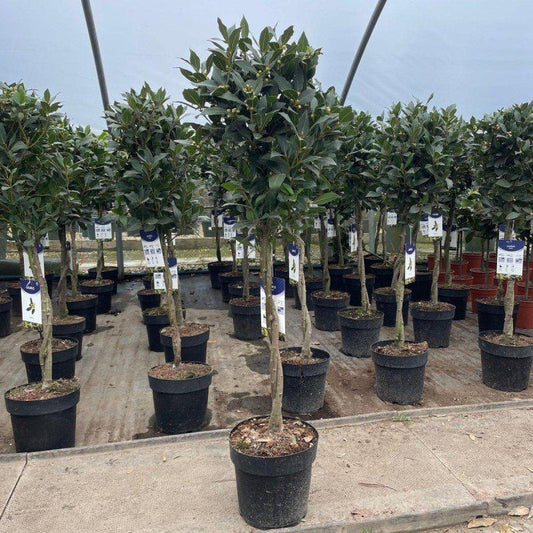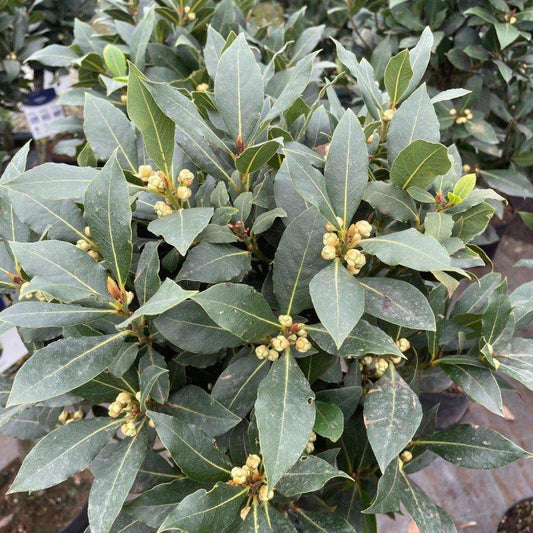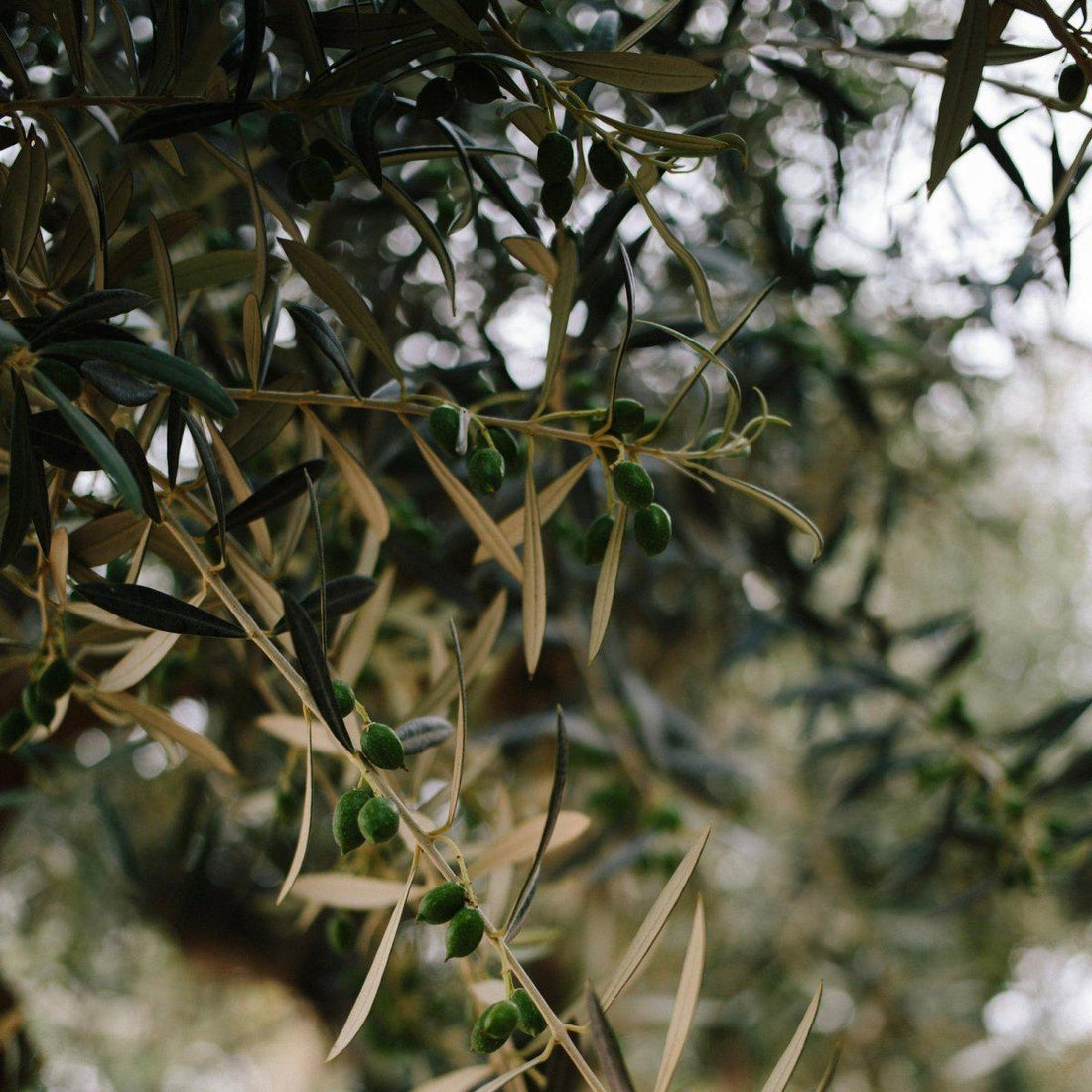Inside this Article:
Olive trees bring a touch of the Mediterranean to UK gardens, offering not only ornamental beauty but also the potential for homegrown olives. In this guide, we delve into the diverse varieties of olive trees that thrive in the UK's climate. From classic cultivars to lesser-known gems, explore the world of olive cultivation and discover how to nurture these resilient trees in your own backyard.
The Charm of Olive Trees
Olive trees have long been revered for their graceful appearance, silvery foliage, and symbolic significance. Their ability to thrive in various climates, including the UK, makes them a popular choice for gardeners seeking a touch of exotic allure.
Olea Europea
Olea Europea, commonly known as the European Olive, is the species from which most cultivated olive trees originate. While it's not as commonly grown in the UK as in Mediterranean climates, it can still thrive in milder regions with proper care.
Olive trees not only add aesthetic value to gardens but also serve practical purposes. Their evergreen foliage provides year-round interest, while their fruits can be harvested for culinary use or pressed into oil. Additionally, olive trees are known for their resilience and ability to withstand drought and poor soil conditions.
Olive Tree Varieties that Grow Well in the UK Olive trees come in numerous varieties, each with its own unique characteristics and growing requirements. Let's explore some of the top choices for UK gardeners:
Arbequina
Arbequina olive trees are prized for their compact size, making them ideal for small gardens or containers. Originating from Catalonia, Spain, these trees produce small, flavorful olives that are perfect for culinary use.
In addition to their petite stature, Arbequina olive trees are known for their early fruiting habit, often producing olives within the first year or two of planting. This makes them a popular choice for gardeners eager to enjoy a harvest sooner rather than later. Despite their small size, Arbequina olives pack a punch in terms of flavor, with a fruity, slightly nutty taste that is ideal for both cooking and snacking.
Frantoio
Hailing from Tuscany, Italy, the Frantoio olive tree is renowned for its high-quality oil production. Its distinctive, medium-sized fruits yield a robust, peppery oil that is prized by chefs and home cooks alike.
Frantoio olive trees are valued not only for their oil but also for their ornamental beauty. With their glossy, dark green foliage and gracefully arching branches, these trees make striking additions to any garden landscape. Additionally, Frantoio olives are known for their versatility, lending themselves well to both cooking and finishing dishes.
Leccino
Originating from Tuscany, Italy, the Leccino olive tree is prized for its dual-purpose nature, offering both ornamental beauty and abundant fruit production. Its medium-sized, elliptical olives yield a mild, buttery oil that is perfect for cooking and dipping.
Leccino olive trees are beloved by gardeners for their dependable fruiting habit and attractive appearance. With their dense canopy of silvery-green leaves and prolific clusters of olives, these trees add visual interest to gardens year-round. Additionally, Leccino olives are prized for their delicate flavor profile, which pairs well with a variety of culinary dishes.
Pendolino
Pendolino olive trees originate from Tuscany, Italy, and are prized for their weeping habit, which adds an elegant touch to any garden landscape. Despite their ornamental appeal, Pendolino trees also produce small to medium-sized olives that yield a delicate, fruity oil.
Pendolino olive trees are renowned for their graceful, pendulous branches, which sway gently in the breeze, creating a sense of movement and rhythm in the garden. While their weeping form is undoubtedly their most striking feature, Pendolino trees also offer practical benefits, such as their ability to pollinate other olive varieties and their relatively early fruiting habit.
Picual
Originally from Andalusia, Spain, the Picual olive tree is prized for its high oil content and robust flavor. Its medium to large-sized fruits produce a bold, peppery oil that is favored by connoisseurs and chefs alike.
Picual olive trees are valued not only for their oil but also for their resilience and adaptability. With their vigorous growth habit and tolerance for a wide range of soil types, these trees are well-suited to the UK climate, where they can thrive and flourish with minimal care. Additionally, Picual olives are known for their rich, complex flavor profile, which adds depth and character to a variety of culinary dishes.
Cornicabra
Originating from Castilla-La Mancha, Spain, the Cornicabra olive tree is prized for its versatility and adaptability. Its medium-sized fruits produce a rich, fruity oil that is perfect for both cooking and finishing dishes.
Cornicabra olive trees are cherished by gardeners for their reliability and low-maintenance nature. With their sturdy, upright growth habit and glossy, dark green foliage, these trees make handsome additions to any garden landscape. Additionally, Cornicabra olives are prized for their robust, fruity flavor, which enhances a wide range of culinary dishes.
Frequently Asked Questions (FAQs)
What are the best olive tree varieties for UK gardens?
The best olive tree varieties for UK gardens include Olea Europea, Arbequina, Frantoio, Leccino, Pendolino, Picual, and Cornicabra. These varieties are well-suited to the UK climate and offer a range of flavors and uses.
How can I care for olive trees in the UK?
Olive trees in the UK require well-drained soil, plenty of sunlight, and protection from harsh winter weather. Regular watering, pruning, and fertilizing can help ensure healthy growth and abundant fruit production.
When is the best time to plant olive trees in the UK?
The best time to plant olive trees in the UK is in the spring, after the danger of frost has passed. This allows the trees to establish their root systems before the onset of winter.
Do olive trees need special care in the UK?
While olive trees are relatively low-maintenance, they do require some special care in the UK climate. Protecting them from frost, providing adequate drainage, and ensuring sufficient sunlight are key to their success.
Can olive trees survive in the UK?
Yes, olive trees can survive and even thrive in the UK climate, especially in milder regions with well-drained soil and plenty of sunlight.
How long does it take for olive trees to bear fruit in the UK?
Olive trees typically begin bearing fruit within 3 to 5 years of planting, although this timeline can vary depending on factors such as variety, growing conditions, and care.


